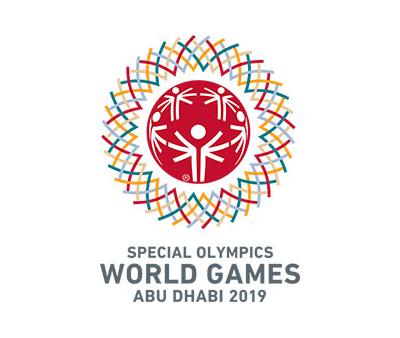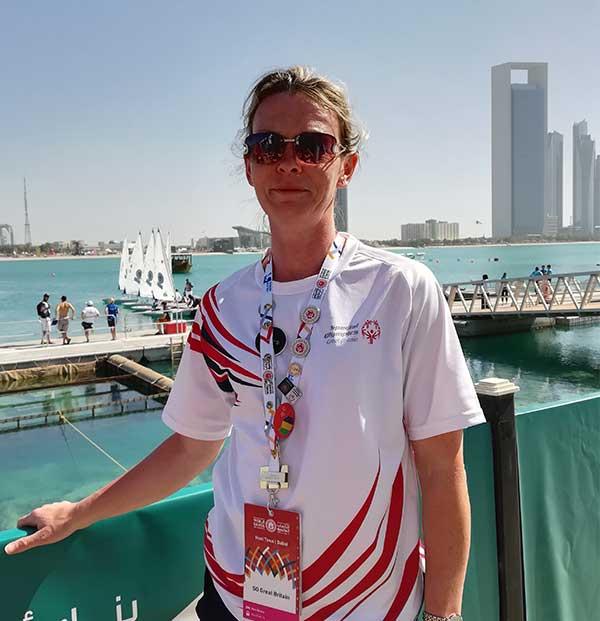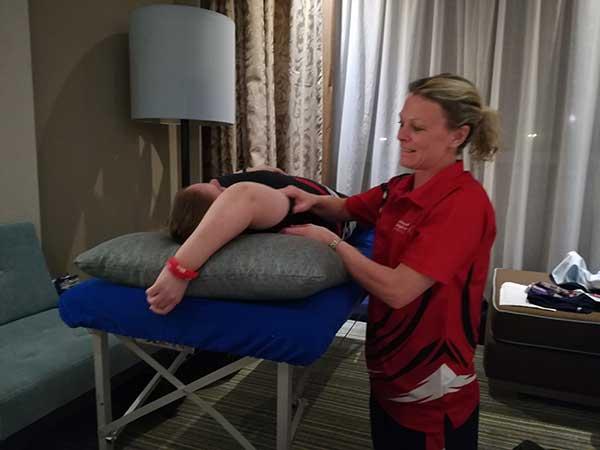With the opening ceremony of the Special Olympic World Games behind them, Team GB physios Alistair Beverley and Aileen Young explain what their first week of work has been about.

Hello everyone. Firstly and most importantly I must right a wrong in the previous blog post. Nicola Turner is indeed coach for artistic gymnastics, not athletics (sorry Nicola, can we be friends again?)
So, the opening ceremony has come and gone and I think it's fair to say it was an exceptional experience! Inspirational words from athletes, Special Olympics chairman Timothy Shriver and others; meeting Sebastian Coe was a great experience for many of our athletes and, I think, they feel it gave them credibility as athletes.
If you haven’t yet, you can download the ESPN player app and, without signing up you can get free access to games coverage. Click the “what’s on” button.
The Special Olympics is indeed a social and humanitarian movement, for the athletes it is about the sport. To be given the recognition by the media as sportswomen and men is important to them. Incidentally I hear this has picked up judging by the messages we are getting which is fantastic and justifies the three camera teams following the GB squad combined with sports television channel ESPN coverage.
We are a few days into competition now with many of the “divisioning” events taking place to ensure a match of abilities to ensure fair competition. As I type this, literally this second Team SOGB have won their first gold medals in the pool!
Our role has involved clinics for things that have cropped up, court/track/pitch side work, helping to manage the team flow when we travel en mass, coordinating with media and PR personnel, working with local medical services and, most importantly, trying to source a bus!

In this blog we will feature our lead physiotherapist, Aileen Young. Aileen is a senior physiotherapist for NHS Greater Glasgow and Clyde and works at their West Glasgow Ambulatory Care Hospital.
Aileen’s journey into Special Olympics began in 2005 when Glasgow hosted the National Summer Games.
‘I was invited to join the planning committee by the then emergency planning department. ‘
Aileen helped organise and provided clinical physiotherapy input at the games.
‘I enjoyed the experience so much I sought out the local Special Olympics club in Glasgow. From there-on I applied and was appointed for the position of physiotherapist for the Great Britain squad travelling to China in 2007 for the World Games.
‘I have since worked at National Summer Games in Leicester in 2009, World Summer Games in Athens 2011, Bath in 2013, Sheffield in 2017 as well as the 40th anniversary games in Stirling in 2018. I have found all the games a great experience and really enjoyed getting to know the athletes and coaches from around the country.
‘One of the highlights for me is seeing the determination and joy of the athletes as they compete.
‘I would like to highlight some of the highs and challenges I have faced of my experience of volunteering as a physio for Special Olympics:
‘Highs: each day is completely different and no two days are the same due to the number of sports taking part. I personally enjoy assessing and treating acute injuries, we can really make a difference at that stage and support athletes on their way to recovery.

‘Developing friendships with those who are also involved with the Special Olympics is something I really value and these bonds are enduring, we still meet up with clinicians from 2005.
‘Seeing the athletes on their journey towards these games has been really rewarding. Squad formation being two years out from a games and now we are getting to see the athletes at their personal best.
‘There are of course challenges associated with any role as a clinician. You are working with sports people who want to compete, who have been involved for years in training and helping to fundraise, whose families may have travelled to join the squad. You have a lot of responsibility and sometimes tough decisions need to be made from a clinical standpoint.
‘You will be working long days and lack of sleep is tricky to deal with.’
‘So, how has involvement with the Special Olympics altered my practice and indeed, me as a person?
‘Its helped me to develop a greater understand of people and the idiosyncrasies that make each one of us unique. I am now much more able to address the person as a whole and not as a body part, injury or, most importantly, diagnosis.
‘I have developed more patience and flexibility in my approach. As well as learning to be able to sleep standing up!”
Find Out More
Number of subscribers: 1




































